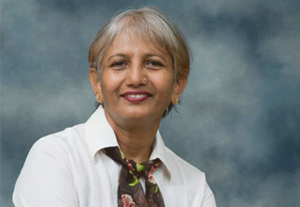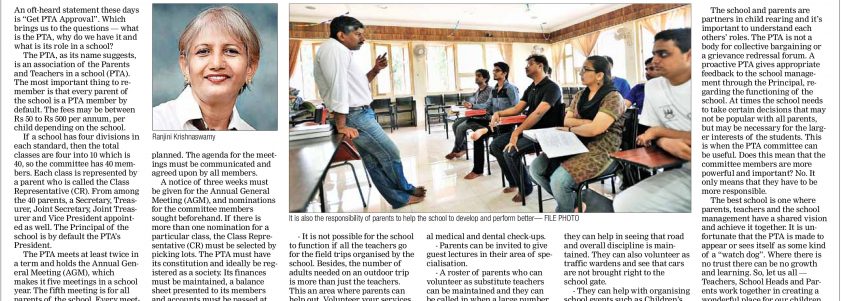The best school is one where parents, teachers and the school management have a shared vision and achieve it together.
An oft-heard statement these days is “Get PTA Approval”. Which brings us to the questions — what is the PTA, why do we have it and what is its role in a school?
The PTA, as its name suggests, is an association of the Parents and Teachers in a school (PTA). The most important thing to remember is that every parent of the school is a PTA member by default. The fees may be between Rs 50 to Rs 500 per annum, per child depending on the school.
If a school has four divisions in each standard, then the total classes are four into 10 which is 40, so the committee has 40 members. Each class is represented by a parent who is called the Class Representative (CR). From among the 40 parents, a Secretary, Treasurer, Joint Secretary, Joint Treasurer and Vice President appointed as well. The Principal of the school is by default the PTA’s President.
The PTA meets at least twice in a term and holds the Annual General Meeting (AGM), which makes it five meetings in a school year. The fifth meeting is for all parents of the school. Every meeting must meet a certain minimum attendance, decided by the committee. If the quorum is not met, the meeting is adjourned for 30 minutes and then conducted as planned. The agenda for the meetings must be communicated and agreed upon by all members.
A notice of three weeks must be given for the Annual General Meeting (AGM), and nominations for the committee members sought beforehand. If there is more than one nomination for a particular class, the Class Representative (CR) must be selected by picking lots. The PTA must have its constitution and ideally be registered as a society. Its finances must be maintained, a balance sheet presented to its members and accounts must be passed at the AGM.
Whether or not there is a PTA, it is the norm for parents to help the school for effective functioning in the following ways:
- It is not possible for the school to function if all the teachers go for the field trips organised by the school. Besides, the number of adults needed on an outdoor trip is more than just the teachers. This an area where parents can help out. Volunteer your services for such trips and not just for your child’s class.
- If there are parents who are doctors or dental surgeons, they can be roped in to conduct general medical and dental check-ups.
- Parents can be invited to give guest lectures in their area of specialisation.
- A roster of parents who can volunteer as substitute teachers can be maintained and they can be called in when a large number of teachers are absent during the correction of Board Exam papers, or other reasons such as illness and sudden emergencies.
- At the time of school events, they can help in seeing that road and overall discipline is maintained. They can also volunteer as traffic wardens and see that cars are not brought right to the school gate.
- They can help with organising school events such as Children’s Day and Teachers’ Day. The assistance of parents in events such as races and plays is invaluable as teachers are often busy with the main event.
The school and parents are partners in child rearing and it’s important to understand each others’ roles. The PTA is not a body for collective bargaining or a grievance redressal forum. A proactive PTA gives appropriate feedback to the school management through the Principal, regarding the functioning of the school. At times the school needs to take certain decisions that may not be popular with all parents, but may be necessary for the larger interests of the students. This is when the PTA committee can be useful. Does this mean that the committee members are more powerful and important? No. It only means that they have to be more responsible.
The best school is one where parents, teachers and the school management have a shared vision and achieve it together. It is unfortunate that the PTA is made to appear or sees itself as some kind of a “watch dog”. Where there is no trust there can be no growth and learning. So, let us all — Teachers, School Heads and Parents work together in creating a wonderful place for our children to grow and flourish.
Author: Dr. Ranjini Krishnaswamy
Email: jinikay@gmail.com
This Article was published in the DNA Newspaper (Mumbai Edition) on 27th February 2017. You can read it here.





